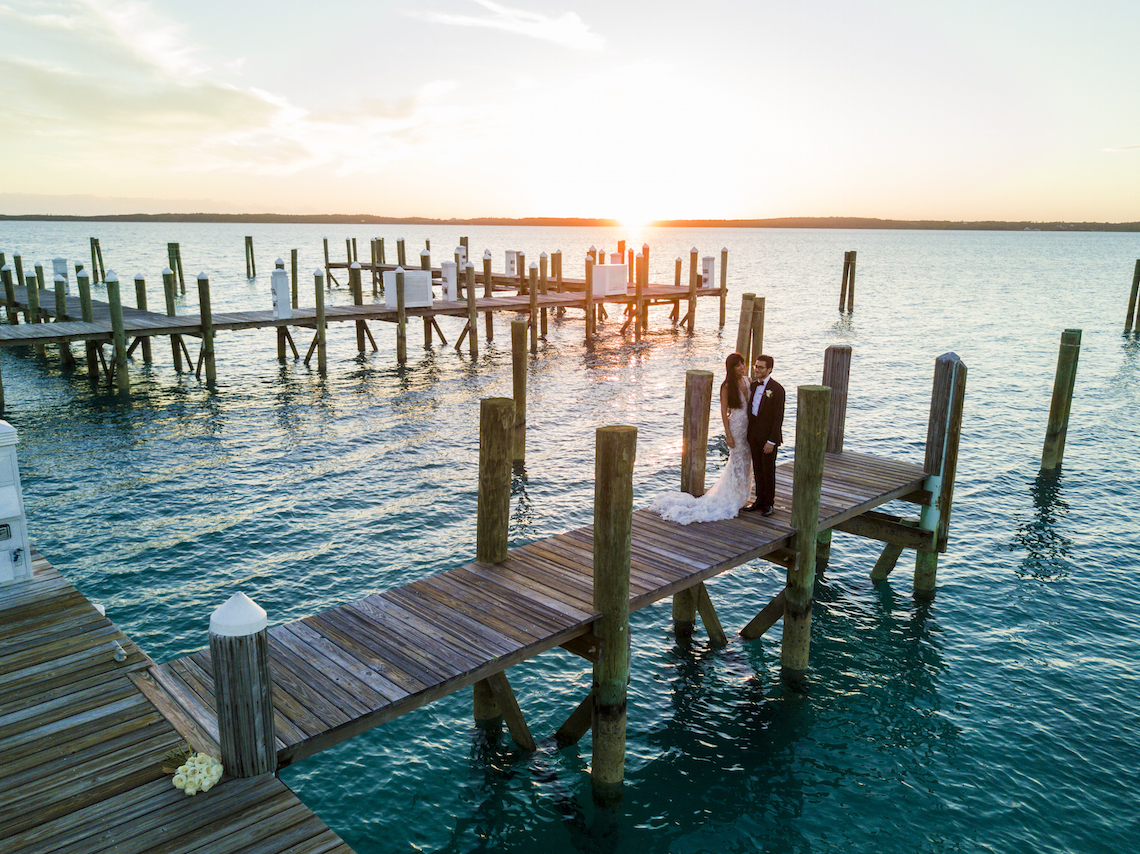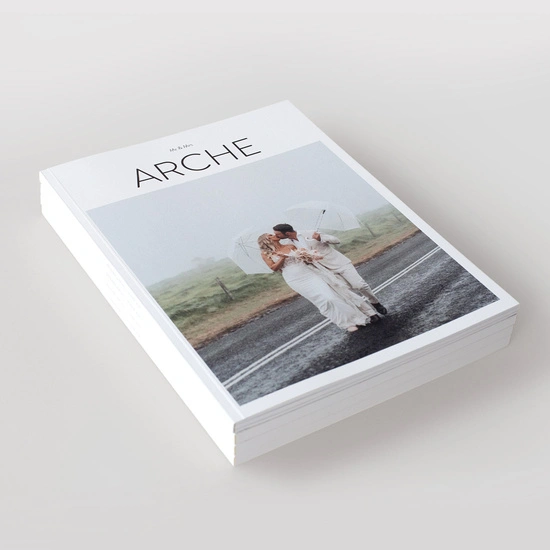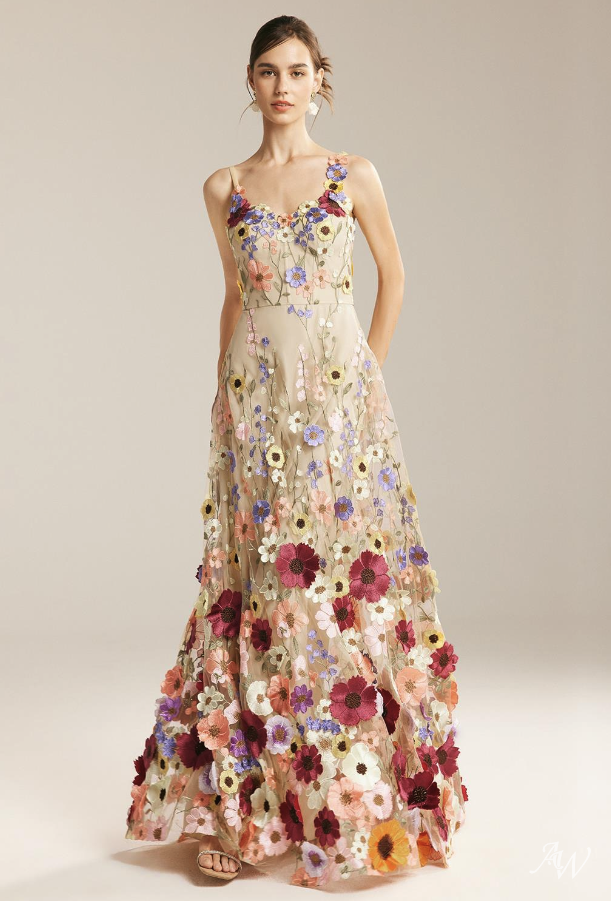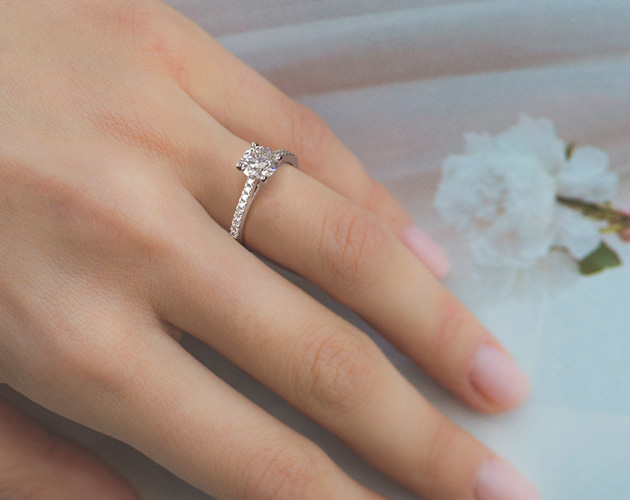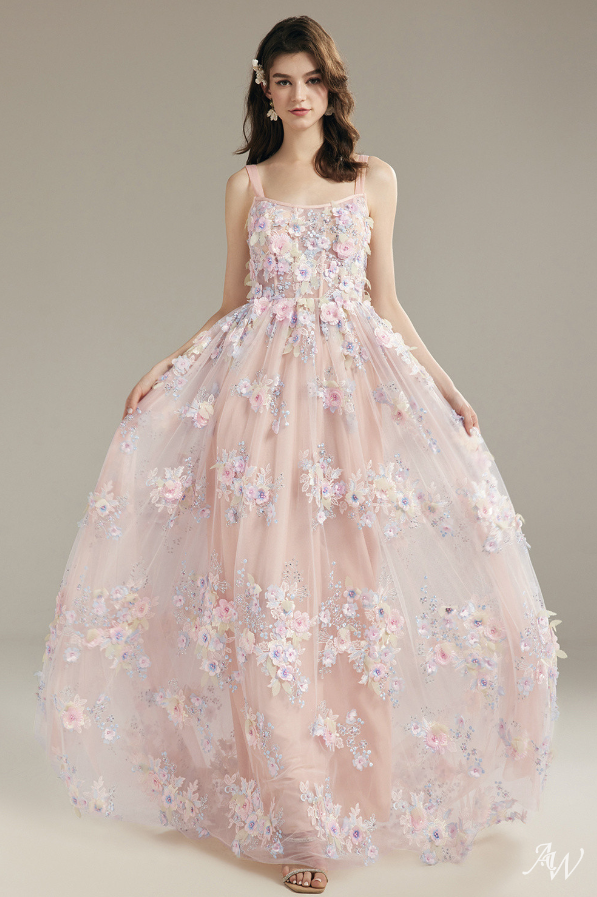Today, we’re kicking off a new series of guest posts from wedding experts. Professionals from all kinds of fields, who’ll share their best tips to help you get the most from your big day.
And today, we’re getting started with one of our favourite topics, and something we reckon doesn’t get enough attention – wedding films.
Andrew Gemmell, Founder of The Filming Business, is one of the most renowned wedding filmmakers in the industry. His cinematic films capture both the grandeur and the romance of the weddings he works on, so it’s little wonder he has filmed events for the likes of Elton John, Claudia Schiffer, and Poppy Delevingne.
And today, we’re so lucky that he’s sharing his ultimate guide to wedding films – with insights and advice that will help you make an informed decision on booking your own wedding videographer and get incredible results from your film – without getting bogged down with fancy footage or cheap deals.
Over to you Andrew…

Photo of Andrew, founder of The Film Business by Holly Clarke Photography
1. Know the Crew Who Will be Filming your Wedding
There are many ‘volume’ based video production companies out there that charge less but send random cameramen to film and use random editors.
Sometimes you strike lucky and get a great crew – but if you are the 3rd or 4th wedding that day for these companies, then you may end up with a poorly shot wedding.
2. Check their Wedding Credentials
Make sure you know that whoever is filming your day has been filming weddings as a profession for some time. Simply knowing how to film or being a TV or broadcast news camera operator does not make a great wedding videographer.
A great wedding filmmaker is a producer/director/sound specialist. They are friendly, discrete and will know where to be at least a minute before they need to be.
They will be operating multi cameras and when working with other crew they will be communicating the whole time about what shot they are covering, sometimes telepathically!
This comes from filming so many weddings that a sixth sense becomes part of the skill set.
3. Style Over Substance
There are hundreds of videos out there showing incredible shots and short clips from weddings. Extreme production equipment has become so much more affordable that producing cinema like footage has become almost too easy.
However, be mindful that the short highlights clip does not tell the whole story of what a couple and their family really might want from a film.
From our experience most couples want every detail, every moment, every speech and every guest captured. They would rather have all 150 of their guests in their final film than hours of sweeping drone footage of the venue.
Of course having both is great but until you see a full film from a company rather than just the highlights, you will not know what you are missing.
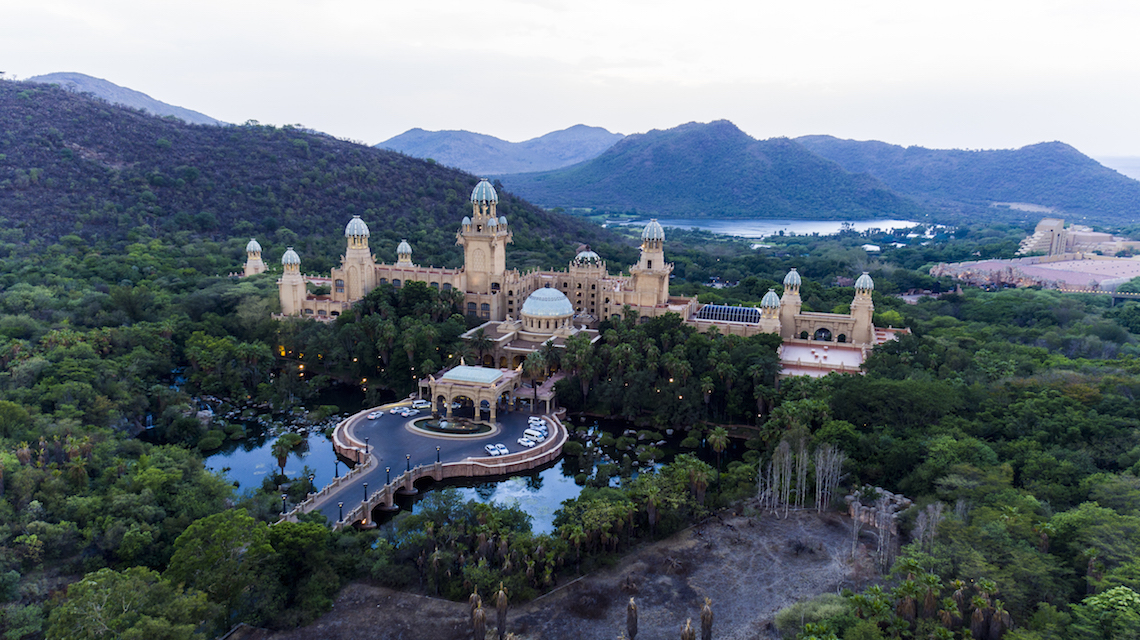
Still by Andrew Gemmell, The Filming Business
4. There is No Ideal Length for a Wedding Film
Ensure you are not given a fixed length for your wedding film and instead let the length to be determined by the content of the day.
Your wedding film should include everything – the service, the speeches, all the details.
You want a film that lasts and even if it’s very long, if it’s been skillfully edited and crafted it’ll be totally watchable.
5. Know the Pitfalls of Different Styles
There’s a lot of choice when it comes to the final look of your wedding film. A little like choosing between Instagram filters, you can change the colours, style and look.
It’s quite fun to make the film look antique by making it look like 8mm or 16mm film and there are people out there who will actually film with these original cameras.
These are truly authentic and look great but beware of the risks of having these old style cameras film your day, as you will be very limited on the quantity of footage they will capture and you may find that they don’t record any sound.
The film developing and processing part is also not risk free in itself.
It’s always safer to have your wedding filmed on modern cameras, giving you the option of making it look exactly as you might like later on while ensuring nothing is missed.

Photo by Paola Colleoni via Bridal Musings
6. Audio Is So Important
Beautiful filming with bad audio makes an awful video yet bad filming with excellent audio is still watchable.
Think of a speech where the audio is not audible, there may be hissing or background sound throughout – even if the image is stunning, it’s not going to be something you can enjoy sitting through.
Your filmmaker should put a lot of emphasis on collecting sound and this should be one of their main concerns.
Individual recorders should be used on all mixing desks for the speeches and wherever possible radio mics should be used too. Great ambient sound can make all the difference.
7. Industry Relations
So what makes a wedding go smoothly? The planner will have a great deal to do with that and having worked with the very best over the past 25 years, we know the benefits of having someone dedicated to coordinating all the suppliers at a wedding.
Most top planners have suppliers that they love working with, as there is synergy between how they work and what they expect from their suppliers.
We are fortunate to work alongside some of the best wedding suppliers in the industry and turning up to film a wedding quite often means us bumping into great friends and colleagues on the day.
This means we get great support on the day with anything technical, whether it be lighting or sound feeds. When there is a team of people who all know one other at an event it makes for a far smoother experience as everyone is looking out for everyone else.
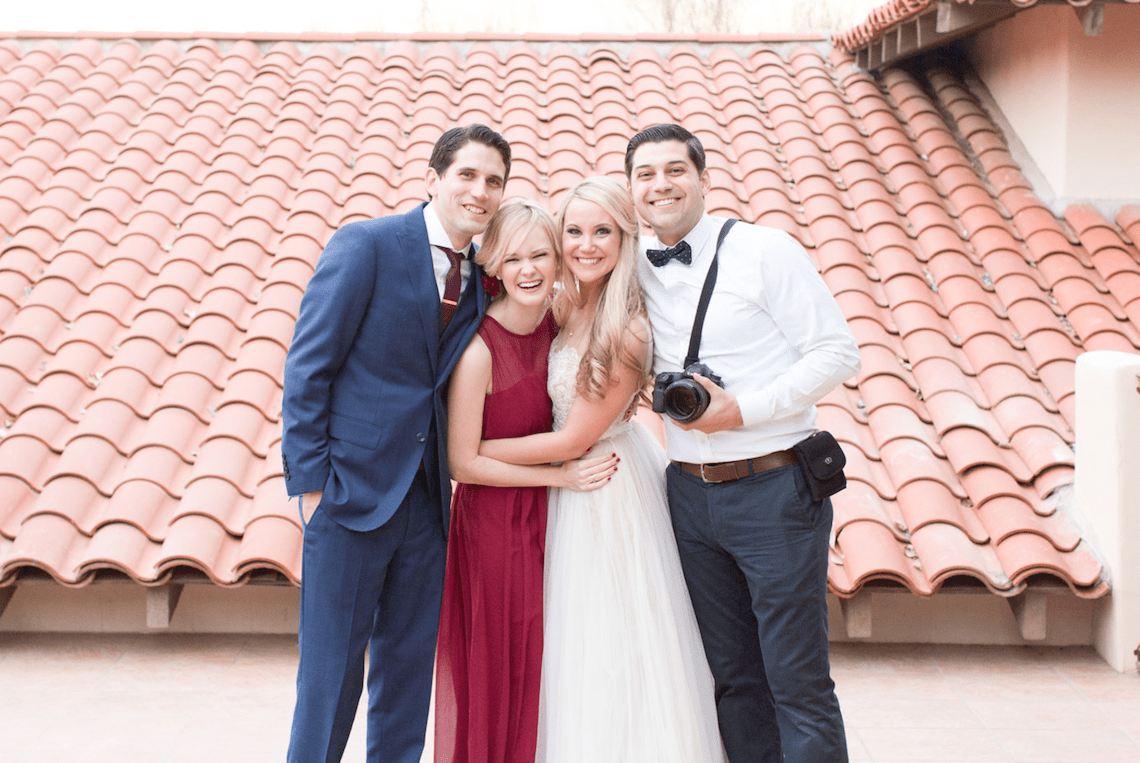
Photo by Amy & Jordan Photography via Bridal Musings
8. Photography
We often hear of a tension between photographers and filmmakers, each getting in the other’s way. Our philosophy on this is simple – the photographer is more important than the film crew!
Their job is much harder in that they have to capture a single moment perfectly.
We love having the photographer in our shot – they are part of the day much more so than a film crew and again, like with other suppliers, there can be a great synergy between the photographer and filmmakers with each helping the other out if one has spotted something the other hasn’t.
When events last several days it’s critical for the two to get on!
9. Kit
Video production kit has come a very long way over the last few years making it possible to achieve truly spectacular footage at weddings.
We invest heavily into equipment and ensure we have the right tool to film any circumstance in the best way possible. We may turn up to a wedding with well over £75,000 of equipment.
We may only use 50% of it – we just don’t know which 50% will be the best for the situation. We have backups and spares, and backup of spares.

Still by Andrew Gemmell, The Filming Business
10. Destination Weddings
With the destination wedding becoming ever more popular, it’s important to work out what filmmaker is best for your day. Can they speak the language of the country? Can they drive abroad? What kit will they bring?
Filming abroad has a few extra pitfalls – excess baggage, potential customs issues (where equipment needs carnets) and is the drone legal in that country?
Knowledge and experience is critical so check the credentials of your crew before you book!
11. Delivery
Something to consider in advance is how you would like your film presented to you at the end of the day.
DVDs are intrinsically standard definition whereas if you would prefer High Definition (HD) you will need Blu Rays.
But what if you want 4K? Some companies will offer this but it requires a massive amount of data. You will most likely need a USB stick with this format as although there are 4K Blu Ray solutions not everyone has a suitable player.
Of course you can also ask your company to provide a link such as VIMEO to stream the content automatically at the highest resolution available for the bandwidth available.

Photo by Justine Milton via Bridal Musings
12. Cost
When comparing wedding production companies make sure you are comparing apples with apples.
If one company is quoting £1000 for two cameramen and another is charging £4000, make sure you ask enough questions to work out why.
- What is the experience of the cameramen?
- What is the experience of the editor?
- Are they fully insured?
- What cameras do they use/ what range of equipment?
- Can they offer a qualified Drone pilot?
- How many days editing will they need?
- You will need at least 8 to 10 days in an edit suite for a highly crafted edit of a 10-hour wedding with two cameramen – anything less is rushed.
- Have you seen a full film of their work?
- Will the same cameramen/editor who made that film be working on your day?
- Have they built a strong industry reputation for quality?
Our motto is “One day. One Chance. One Take”
There are no second chances at getting a wedding right. We were recently asked for a copy of a wedding video that we made within two weeks. That might not sound that impressive but the wedding was in 1992.
We have every tape, every shot and every master wedding ever made, all categorised and logged in our library.
Watch Some of Andrew’s Stunning Work
Shirin & Gregory – Cinematic Highlights from The Last Word TV on Vimeo.
For more information on The Filming Business, and to watch more of Andrew’s work, visit The Filming Business website.
